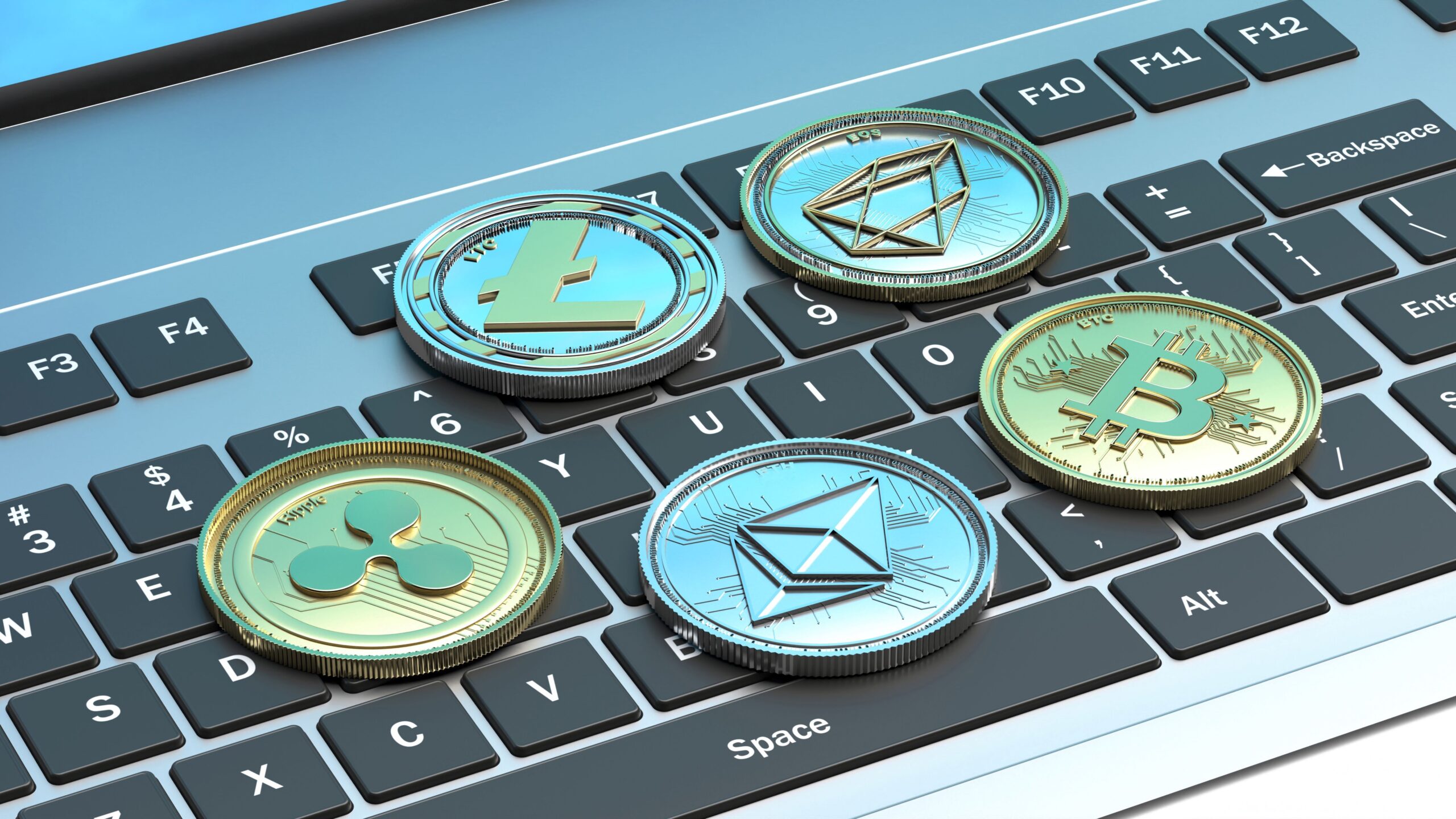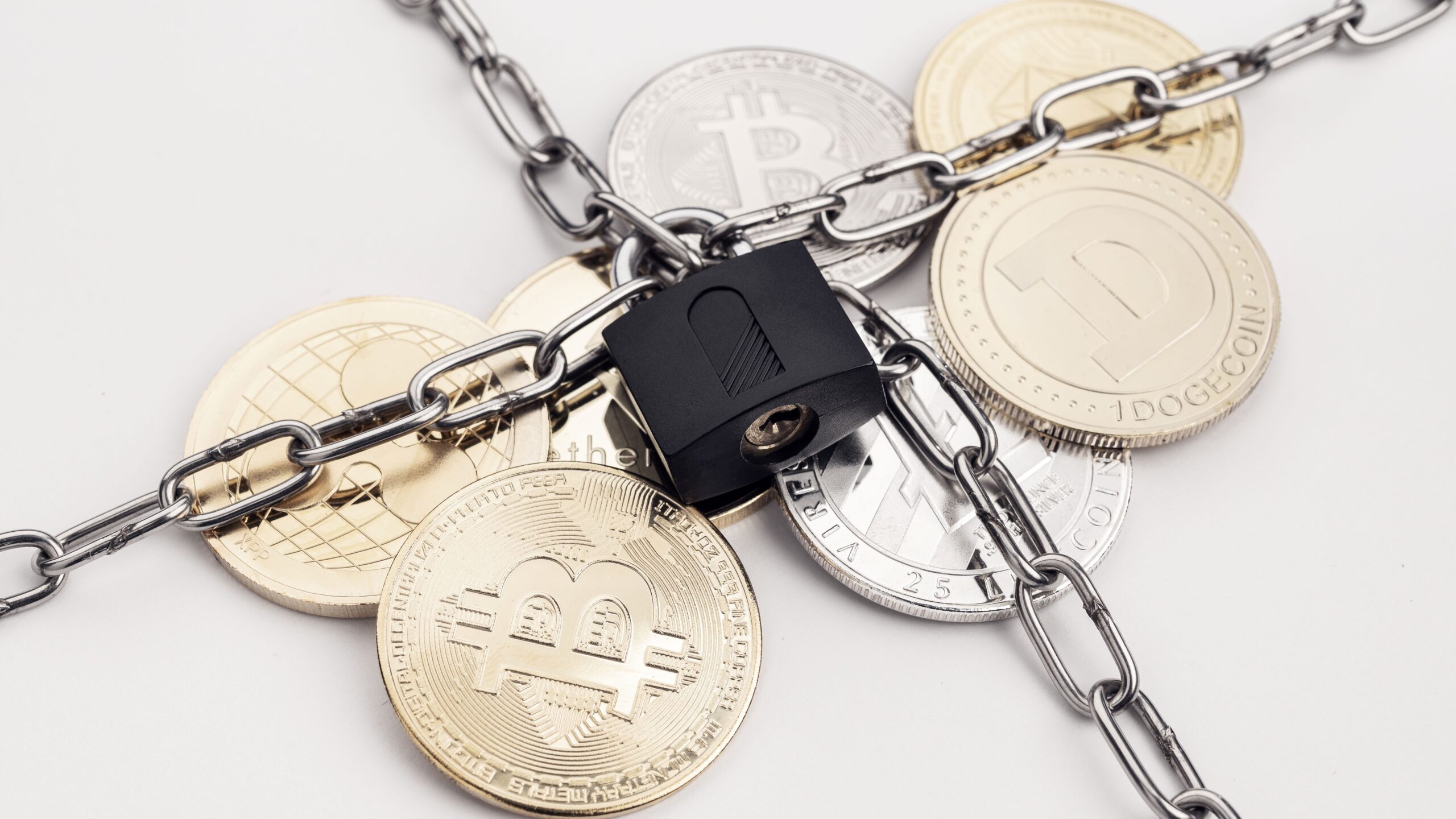So, you’ve heard the buzz—your friends are trading, your feed is packed with crypto memes, and every scroll screams “Buy Bitcoin now!” Here’s the kicker: you’re a beginner, and it feels like diving into the deep end without floaties. Let’s change that. We’re going to break down the classic question: should you buy Bitcoin (BTC) with a debit card or start with Altcoins if you’re just getting started? Get comfy—we’re not just skimming the surface; we’re going deep.
Understanding the Basics: Bitcoin vs. Altcoins
Bitcoin is often called the grandfather of cryptocurrencies for a good reason. Launched back in 2009 by the mysterious figure known as Satoshi Nakamoto, Bitcoin was the first decentralized digital currency that gained widespread attention. Think of it as digital gold — it has a capped supply of only 21 million coins, making it scarce and valuable. This scarcity is one of the reasons why so many people see Bitcoin as a store of value, similar to precious metals. Over time, Bitcoin has become the most recognized and trusted cryptocurrency, a pioneer that laid the foundation for everything that followed.
On the other hand, altcoins are basically every other cryptocurrency created after Bitcoin’s debut. The name itself comes from “alternative coins,” highlighting their position as alternatives to Bitcoin. These altcoins come in all shapes and sizes, with thousands of different projects and purposes. Some of the well-known examples include Ethereum, which introduced smart contracts and opened doors for decentralized applications, and others like Ripple or Cardano, which focus on fast transactions or more efficient networks. Altcoins can be seen as the vibrant variety in the crypto world, offering different features that Bitcoin doesn’t have.
While Bitcoin’s primary purpose is to serve as a digital currency and store of value, many altcoins are designed to solve different problems or improve upon Bitcoin’s limitations. For instance, Ethereum’s smart contracts enable automated, programmable agreements, which have revolutionized industries like finance and gaming. Others might focus on privacy, faster transaction speeds, or energy efficiency. Because of this diversity, altcoins tend to be more experimental and riskier than Bitcoin, but they can also offer unique opportunities for investors who want to explore beyond the original cryptocurrency.
In essence, understanding the difference between Bitcoin and altcoins is like understanding the difference between gold and all the other metals in the periodic table. Bitcoin’s value comes from its scarcity and brand recognition, while altcoins offer a wide range of innovative technologies and use cases. For beginners, this distinction is important because it helps you decide where to start and what kind of risks you are willing to take on in the world of cryptocurrency. Both have their place in the market, but they play very different roles in the crypto ecosystem.
Head-to-Head: Comparing Bitcoin and Altcoins
- Launch Year: Bitcoin was launched in 2009, making it the very first cryptocurrency and the pioneer of the entire market. Altcoins appeared after Bitcoin’s success, with each altcoin launching at different times depending on the project—some as early as 2011, others much later. This means Bitcoin has the longest track record, while altcoins are newer and often still in development or experimentation phases.
- Purpose: Bitcoin was created with a straightforward purpose — to serve as digital gold, a decentralized store of value that protects wealth from inflation and government control. Altcoins, however, serve a much broader range of purposes. Some altcoins focus on adding features Bitcoin doesn’t have, like smart contracts (Ethereum), privacy enhancements (Monero), or faster transaction processing (Litecoin). Others try to carve out niches in decentralized finance, gaming, supply chain tracking, or even social media.
- Market Capitalization: Bitcoin consistently holds the largest market cap among all cryptocurrencies, often making up 40-60% of the entire crypto market’s value. Altcoins collectively make up the remainder, but individually most have much smaller market caps than Bitcoin, which means Bitcoin is generally considered more stable and reliable from an investment perspective.
- Volatility: Bitcoin experiences moderate to high volatility. Despite price swings, its size and market presence help temper extreme fluctuations. Altcoins tend to be far more volatile, with some coins doubling or halving in value in short periods due to lower liquidity, speculative interest, or project news. This higher volatility can mean bigger opportunities — but also greater risk.
- Liquidity: Bitcoin enjoys very high liquidity, with an abundance of buyers and sellers on virtually every crypto exchange worldwide. This means it’s easy to enter or exit positions without much slippage. Altcoins’ liquidity varies widely — popular altcoins like Ethereum have high liquidity, while smaller or newer altcoins may suffer from thin markets, making trades more expensive or difficult.
- Security: Bitcoin uses the Proof-of-Work (PoW) consensus mechanism, which is highly secure but energy-intensive. Its massive network of miners and robust codebase have made it extremely resistant to hacks and attacks over more than a decade. Altcoins use various security methods, including PoW, Proof-of-Stake (PoS), Delegated PoS, or hybrid models. Security strength varies by project; some altcoins face vulnerabilities due to smaller networks or newer technology.
- Decentralization: Bitcoin is one of the most decentralized cryptocurrencies, with miners distributed globally and no central authority. Altcoins differ here: some aim for decentralization, but many are more centralized, especially newer projects or those controlled by specific teams or foundations.
- Popularity and Brand Recognition: Bitcoin is by far the most popular and well-known cryptocurrency, often the first one people think of when they hear “crypto.” It has become synonymous with cryptocurrency in general. Altcoins range from highly popular projects like Ethereum, Ripple, and Cardano to thousands of lesser-known tokens with limited user bases.
Why Beginners Often Gravitate Toward Bitcoin
| Reason | Explanation | Impact for Beginners | Comparison to Altcoins | Example/Notes |
| Familiarity and Trust | Bitcoin is the most recognized cryptocurrency worldwide, often synonymous with “crypto.” | Beginners feel safer investing in a well-known and trusted name. | Altcoins are less known and often unfamiliar to new users. | Bitcoin is like the “Coca-Cola” of crypto—everyone knows it. |
| Lower Risk (Relatively Speaking) | While crypto is volatile, Bitcoin’s price swings are less extreme compared to many altcoins. | Reduced fear of sudden massive losses, making it a gentler start. | Altcoins tend to have higher volatility and risk. | Institutional investors like Tesla backing Bitcoin adds confidence. |
| Long-Term Store of Value | Bitcoin is seen as digital gold with a limited supply, holding value over the long term. | Appeals to beginners who want to “buy and hold” rather than trade. | Many altcoins are more speculative and may lack proven track records. | Bitcoin has maintained value over more than a decade. |
| High Liquidity and Ease of Access | Bitcoin is widely available on nearly all crypto exchanges and platforms. | Easier to buy, sell, and convert to cash, lowering entry barriers. | Some altcoins have limited exchange listings and lower liquidity. | Beginners can buy Bitcoin easily even with debit cards. |
| Strong Security and Network Stability | Bitcoin’s decentralized network and Proof-of-Work mining provide robust security. | Less concern about hacking or network failures for beginners. | Altcoins may have smaller networks and varied security protocols. | Bitcoin’s network is the largest and most battle-tested. |
The Case for Altcoins: Why They’re Tempting
Altcoins offer a unique appeal, especially for those who are willing to take a bit more risk in exchange for the chance of higher rewards. Unlike Bitcoin, which is often seen as digital gold and a store of value, altcoins can be exciting because they’re more volatile and unpredictable. This volatility means the potential for bigger gains is real. Think about coins like Shiba Inu or Solana—both started with very low prices and skyrocketed to levels that made early investors substantial profits. For beginners with a bit of appetite for risk, altcoins represent an opportunity to catch the next big wave, even if the journey might be bumpy.
Beyond just potential profits, altcoins bring fresh innovation to the crypto world. Bitcoin’s main purpose is to be a decentralized currency or a store of value, but altcoins often experiment with new technologies and capabilities. For instance, Ethereum revolutionized the space by introducing smart contracts, allowing programmable agreements that run without intermediaries. Other altcoins like Chainlink link smart contracts to real-world data, making them more useful in practical scenarios, while Polygon helps improve Ethereum’s speed and scalability. These innovations make altcoins a breeding ground for fresh ideas that could shape the future of blockchain technology.
Another enticing factor is the variety of altcoins and the different niches they serve. They aren’t just digital money; many altcoins focus on specific industries or use cases, such as gaming, decentralized finance (DeFi), digital identity, or privacy enhancement. This diversity means investors can align their crypto investments with their personal interests or beliefs. Whether you’re passionate about gaming ecosystems powered by blockchain or privacy-focused coins that protect your data, there’s likely an altcoin designed to meet those needs, which adds an emotional and practical dimension to investing.
Finally, the altcoin market is vast and dynamic, with thousands of options, each offering something different. While this can be overwhelming for beginners, it also means there’s a huge playground to explore beyond Bitcoin. For those willing to do their homework, altcoins provide a way to diversify, experiment, and potentially benefit from the cutting-edge developments in blockchain tech. Of course, this comes with risk, but the combination of innovation, niche appeal, and growth potential makes altcoins incredibly tempting to many new crypto enthusiasts.
Know Your Crypto Personality
- Assess Your Risk Tolerance:
Understanding how much risk you’re comfortable with is crucial before diving into crypto. If the thought of wild price swings and sudden crashes stresses you out, Bitcoin is probably your safer bet. Its price fluctuations, while real, tend to be less extreme than most altcoins. On the other hand, if you’re the type of person who can handle ups and downs and even enjoys the thrill of high-risk, high-reward scenarios, altcoins could be more your style. They can swing wildly but offer the chance for big gains. - Consider Your Investment Timeline:
How long are you planning to keep your money invested? If you’re in for the long haul, Bitcoin’s track record as a long-term store of value makes it a strong candidate. It has shown resilience over more than a decade and is often treated like digital gold. Conversely, if you want quicker returns and are prepared to monitor the market actively, altcoins might suit you better. They can grow rapidly but also require you to stay alert and be ready to act fast when opportunities or risks arise. - Evaluate How Much Time You’re Willing to Spend Learning:
Crypto can be complicated, but Bitcoin is relatively straightforward compared to the diverse and complex world of altcoins. If you want a simple entry point that doesn’t demand hours of research, Bitcoin is a great place to start. However, if you’re curious and ready to invest time into understanding different projects, technologies, and the unique features of various altcoins, this can open up a wider range of possibilities. Each altcoin project is different and requires a bit of homework to grasp its potential and risks fully. - Reflect on Your Interest and Passion:
Sometimes investing isn’t just about numbers; it’s about what excites you. Do you care about innovations like smart contracts, decentralized finance, or privacy-enhancing technologies? Altcoins often cater to specific niches, allowing you to align your investments with your interests and values. Bitcoin is more about broad, universal appeal as a digital asset, while altcoins offer more specialized experiences for those who want to explore crypto beyond just a store of value. - Decide on Your Comfort with Volatility and Complexity:
Bitcoin provides a more stable introduction to the crypto space with a simpler use case and a huge community backing it. Altcoins can be complex, with various consensus mechanisms, technical upgrades, and sometimes unclear roadmaps. If you prefer predictability and simplicity, Bitcoin’s your friend. But if you like the idea of diving into new tech and are okay with more uncertainty, altcoins offer an adventurous path. - Think About Liquidity Needs:
If you want to be able to buy and sell quickly without much hassle, Bitcoin usually offers better liquidity due to its widespread adoption. Some altcoins might have limited markets or lower trading volumes, which can affect how easily you can exit your position. Beginners often benefit from starting with highly liquid assets to avoid difficulties when cashing out.
Diversification Strategy: Why Not Both?
| Aspect | Bitcoin | Altcoins | Role in Portfolio | Notes |
| Foundation | Acts as the solid base or crust | Adds flavor and variety (toppings) | Bitcoin provides stability and a reliable store of value | Considered the “digital gold” |
| Volatility | Moderate volatility | High to very high volatility | Bitcoin stabilizes portfolio risk, altcoins add growth potential | Altcoins can cause big swings |
| Use Case | Primarily store of value | Diverse: smart contracts, DeFi, gaming, privacy, etc. | Bitcoin is the backbone, altcoins offer innovative features | Altcoins cater to niche markets |
| Liquidity | Very high liquidity | Varies by coin | Bitcoin is easy to buy/sell anytime, altcoins may be less liquid | Liquidity affects ease of trading |
| Recommended Allocation for Beginners | Typically higher allocation (40%-80%) | Smaller, adjustable allocation (20%-60%) | Depends on risk appetite: conservative, balanced, or aggressive | Example: Conservative 80% BTC, 20% altcoins |
Key Strengths of Bitcoin
Bitcoin stands out as the most secure cryptocurrency network in existence. It operates on a Proof of Work (PoW) consensus mechanism, which means that millions of computers around the world work together to verify transactions and protect the network from attacks. This immense level of decentralization and computational power makes Bitcoin extremely resilient to hacks or fraudulent activities, giving investors a high degree of confidence in its safety. Over its lifetime, Bitcoin’s network has never been successfully breached, which is a testament to its robust security infrastructure.
Another major strength of Bitcoin lies in its real scarcity. Unlike traditional currencies that can be printed endlessly by governments, Bitcoin’s supply is capped at 21 million coins. This finite supply creates a sense of rarity similar to owning a limited-edition collectible or rare artwork. As demand increases and the total number of Bitcoins approaches this limit, the value is expected to rise, assuming demand holds steady or grows. This scarcity is a key reason why many investors see Bitcoin as “digital gold,” a store of value that can hedge against inflation and economic uncertainty.
Beyond security and scarcity, Bitcoin is also incredibly accessible. Today, buying Bitcoin is straightforward and can be done through numerous user-friendly platforms. Apps like Coinbase, Binance, and even mainstream payment platforms like Cash App allow users to purchase Bitcoin with just a few clicks, often with options to buy using a debit card or bank transfer. This ease of access makes Bitcoin a great entry point for beginners who want to step into the world of cryptocurrency without getting overwhelmed by complex processes or technical jargon.
Finally, Bitcoin benefits from widespread recognition and acceptance. It is the most well-known cryptocurrency and enjoys strong institutional support from major companies and investors. This recognition not only boosts trust but also contributes to its liquidity — meaning it can be quickly bought or sold without large price swings. For someone new to crypto, this combination of security, scarcity, accessibility, and popularity makes Bitcoin a compelling choice to start their investment journey.





